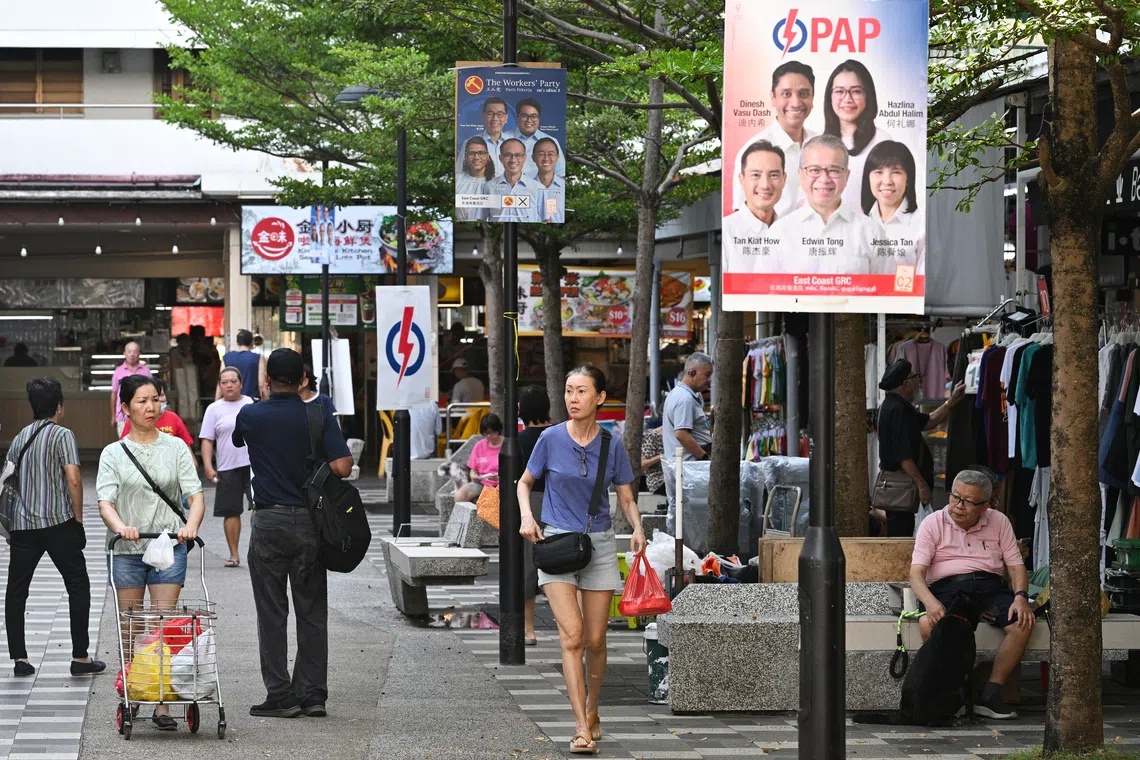- Joined
- Jul 25, 2008
- Messages
- 15,366
- Points
- 113
Tan Cheng Bock, founder of PSP, will not be involved in next general election; will stay on in party

(From left) The Progress Singapore Party's secretary-general Leong Mun Wai, chairman Tan Cheng Bock and first vice-chair Hazel Poa at 726 West Coast market on May 10.ST PHOTO: GIN TAY
Joyce Teo
May 10, 2025
SINGAPORE - Dr Tan Cheng Bock, the Progress Singapore Party’s (PSP) founder, said on May 10 that he will not be involved in the next general election, but the party will return for the next round.
He said: “Today, it’s just to come here and say thank you to those who voted for us, and also to show to those who didn’t vote for us (that) we are not running away.
“We’ll be back soon. We’ll be back in maybe five years’ time. By then, I hope a younger team will take over, and I hope the people will look at us in a different way.”
Dr Tan and party chief Leong Mun Wai gave a brief address to the media before a walkabout at West Coast Market at Block 726 West Coast Road.
This comes seven days after PSP lost all six constituencies it contested at the May 3 general election.
Dr Tan said his party had put up a good fight.
“It’s been a good journey for us, for the younger people. They know what it’s like to fight in the direction (with) all the odds against you,” he said.
“At the end of the day, we didn’t do that well. I don’t want to blame anybody now. I think the important thing is we are just looking forward to see how we can train our younger (members) to understand what is politics and what it is like.”
Dr Tan said he will remain in the party to advise the younger generation.
Dr Tan celebrated his 85th birthday on April 26, during campaigning. Earlier, he had said that he took part in this election in the hope of drawing more younger people to Parliament.
“For me, I’ve gone into Parliament for 26 years, but I want the younger lot to be given that chance to have the experience,” he said on May 10.
“I tried my best. I think maybe they (voters) think: “You’re not ready”, but it’s okay, because the Workers’ Party took about 60 years to just gain 10 seats.
“I told them (PSP members) don’t be discouraged. At least we were given the initial chance. But never mind, we will learn and come back.”

Dr Tan Cheng Bock greeting residents at West Coast Market on May 10.ST PHOTO: GIN TAY
Mr Leong said: “PSP is not going to run away. We’ll reflect, regroup and return.”
He also thanked those who voted for them.
He said that as the party was doing its review, it was not ready to share its plans for now.
PSP’s first vice-chair Hazel Poa was also present at the briefing.
On May 10, the PSP team also planned to visit four other areas, including Boon Lay Place and Jurong West.
Mr Leong and Ms Poa failed to retain their non-constituency MP seats after the general election.
PSP’s A-team that included its top three leaders – Dr Tan, Mr Leong and Ms Poa – lost in West Coast-Jurong West GRC.
The PAP team, led by Minister for National Development Desmond Lee, won 60.01 per cent of the vote share.
During the 2020 General Election, PSP captured public attention when it put up a strong fight in the then West Coast GRC that left the PAP with just 51.68 per cent of the vote share.
The narrow margin sent Mr Leong and Ms Poa into Parliament as NCMPs.
On March 11, the Electoral Boundaries Review Committee said West Coast GRC would absorb some estates from Jurong GRC and be renamed West Coast-Jurong West GRC for the May 3 general election.
The old GRC also ceded estates in HarbourFront and Sentosa to Radin Mas SMC, and areas of Dover and Telok Blangah to Tanjong Pagar GRC.
The new West Coast-Jurong West GRC remained a five-member one and had 158,581 voters.
Mr Leong was among the top 10 members during the recent 14th term of Parliament in terms of questions asked and debate participation.

